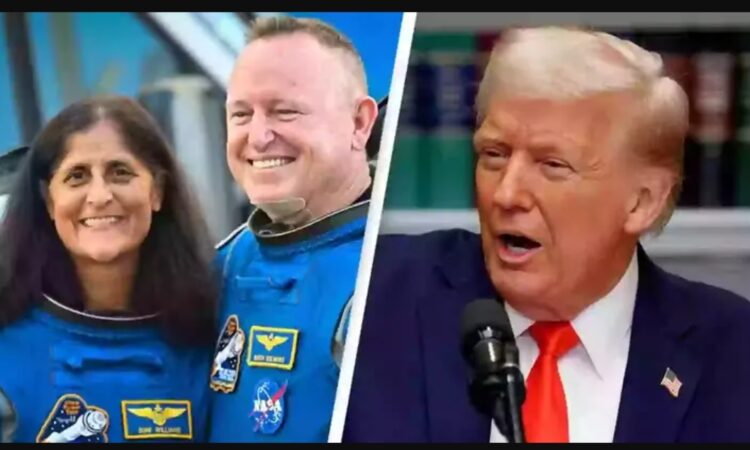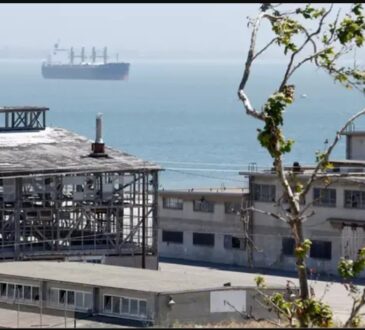Donald Trump makes offer after learning ‘stranded’ astronauts will not receive overtime pay for 9 months stuck in space

The situation involving NASA astronauts Barry “Butch” Wilmore and Sunita “Suni” Williams has sparked a significant conversation about compensation for astronauts, particularly when their missions extend far beyond the original plan.
The two astronauts, who were initially scheduled for an eight-day trip to the International Space Station (ISS), ended up spending over nine months in space due to malfunctions with their returning spacecraft. They were finally brought back to Earth on March 18, 2024, after being rescued by SpaceX’s Crew Dragon.
Despite the extended duration of their mission and the personal toll it took on their lives—including time away from family, disrupted plans, and potential impacts on their mental and physical health NASA confirmed that Wilmore and Williams would not receive overtime or holiday/weekend pay for their additional time in space.
Instead, they will receive their regular 40-hour work-week salaries, along with a daily incidental allowance of $5 for expenses. This incidental pay, which amounts to roughly $1,430 for their 286-day mission, has drawn criticism, especially given the extraordinary circumstances of their prolonged stay in space.
Former NASA astronaut Cady Coleman, who spent 159 days in space during her 2010-11 mission, revealed that she received approximately $4 per day in incidental pay, totaling around $636.
This precedent highlights the longstanding practice of compensating astronauts with minimal additional pay for extended missions, a policy that has come under scrutiny in light of Wilmore and Williams’ situation.
Wilmore’s daughter brought further attention to the issue by sharing details on TikTok, noting that her father would receive only $5 extra per day on top of his annual salary of approximately $152,258.
This revelation has sparked outrage, with many arguing that astronauts who endure such extended and unplanned missions deserve better compensation for their sacrifices.
Former President Donald Trump weighed in on the matter during a press conference on March 21, expressing surprise that the astronauts were not receiving overtime pay. He stated, “Nobody’s ever mentioned this to me. If I have to, I’ll pay it out of my own pocket. I’ll take care of it.
Trump had previously been vocal about the astronauts’ plight, accusing the Biden administration of abandoning them in space and calling on Elon Musk to assist in their rescue. In a post on Truth Social, Trump praised Musk for his efforts, saying, “They have been waiting for many months on Space Station. Elon will soon be on his way. Hopefully, all will be safe. Good luck Elon!!!”
The incident has raised broader questions about how astronauts are compensated for their work, particularly in situations where missions are extended due to unforeseen circumstances.
While NASA’s current policy reflects a standardized approach to pay, the unique challenges and risks associated with space travel have led many to argue that astronauts deserve more robust compensation, especially when their missions go awry.
As the conversation continues, the case of Wilmore and Williams serves as a reminder of the sacrifices made by astronauts and the need for policies that better reflect the realities of their work.
Whether through changes to NASA’s compensation structure or interventions from high-profile figures like Trump, the issue has highlighted the importance of ensuring that those who venture into space are adequately supported and recognized for their contributions.




